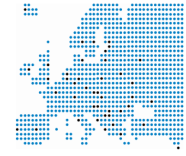A European Code of Conduct for Research Intergrity
 Pieter J.D.Drenth,
Pieter J.D.Drenth,
Hon. President All European Academies (ALLEA),
Chair Working Group 2 (Code of Conduct) of the European Science Foundation Member Organisation
Forum on Research Integrity.
1. Preface
The present Code of Conduct has resulted from a series of discussions within the European Science Foundation (ESF) Member Forum, and especially within Working Group 2 (focussing on „Code of Conduct‟); the Standing Committee on Science and Ethics of All European Academies (ALLEA); and a meeting of representatives of ALLEA‟s member Academies (Berne, 29/30-06-09). The discussions were based on various drafts of a discussion paper1, which had been distributed both within the WG 2 and ALLEA.
The Working Group 2 was one of the four working groups established within the ESF Member Forum on Research Integrity, which resulted from the ESF-CSIC2 workshop „From principles to practice‟ in Madrid, 17-18 Nov. 2008. The objectives of the Member Forum were among others to serve as a platform for the exchange of information on attempts and initiatives to ensure research integrity and to prevent misconduct, and to encourage organisations which do not yet have appropriate structures to initiate debates in their respective communities on adequate models.
The four working groups and their commissions are:
- WG 1 „Raising awareness and sharing information‟ (chair: Sonia Ftacnikova (SL)) ,
- WG 2 „Code of Conduct‟ (chair: Pieter Drenth (NL)3; WG 2 was requested to devise and formulate a (European) Code of Conduct),
- WG 3 „Setting up national structures‟ (chair: Maura Hiney (IE)),
- WG 4 „Research on scientific integrity‟ (chair: Livia Puljak (HR)).
The four working groups work in collaboration and will integrate their insights and conclusions in a comprehensive strategy for promoting and safeguarding integrity in scientific and scholarly research and practice nationally and in the wider European context.
This Code of Conduct has met with the general approval of the European national Academies as well as within the ESF Member Forum. In the attempt to bring Academies in line and to reach an agreement on a Code of Conduct regarding research integrity ALLEA has taken up the gauntlet formulated in the ESF briefing on Good scientific practice in research and scholarship4, in which the following was suggested (art. 60): “National academies are well placed to provide leadership in the pursuit of scientific integrity and good practice. They are often the most appropriate independent body to establish and support a national committee for scientific ethics and to nominate independent experts on panels to investigating cases of alleged misconduct. Those academies that employ scientists have an added responsibility of formulating and managing their own guidelines and codes of practice”.
An analysis has been made of a large number of existing national and international codes, ethical guidelines and regulations with respect to scientific and research integrity, as produced by academies, research foundations and other organisations around the world concerned with the scientific and ethical quality of research. In particular the US ORI publication Introduction to the responsible conduct of research 5 , the OECD-report on Best practices for ensuring scientific integrity and preventing misconduct 6 , and the text of an advice of the Co-ordinating committee for facilitating international misconduct investigations to the Global Science Forum of the OECD (submitted to the 20 th meeting of the GSF, Feb. 2009) have lent support to the propositions developed in this paper. Moreover, the thoughts expressed in this paper are consistent with both ALLEA‟s Memorandum on Scientific Integrity7, and the European Commission‟s Ethics for Researchers8.
In many academies, universities and funding organisations some Code or Guidelines for research integrity and good research practices are already in effect. It is not the intention to replace these with the Code presented here. We expect these Codes or Guidelines rather to be in line with the latter. In some cases some additions or adjustments on the basis of the present proposal may be considered. However, in countries where such a Code does not yet exist or is still being developed this new Code may have a stimulating or steering effect. This document represents an agreement on a set of principles and priorities at a given point in time: changing national or institutional frameworks or scientific and technological developments may make some regular adjustments necessary.
Naturally the confinement to a European agreement on a Code of Conduct does not imply that these principles and guidelines are to remain restricted to the European scientific community. Hopefully they will be a step towards a globally accepted Code to be conceived by world science organisations such as IAP (the International Academy Panel), or the International Council for Science (ICSU) 9. The objective of this proposed Code is to stimulate and develop the emergence of institutional settings that strengthen scientific integrity, and to set standards across Europe that can, eventually, be held valid and implemented world wide.
This Code of Conduct is not a body of law. It is not intended to have a legal character, but rather to be a canon for self regulation. It is a basic responsibility of the scientific community to formulate the principles and virtues of scientific and scholarly research, to define its criteria for proper research behaviour, and to set its own house in order when scientific integrity is threatened.
It is generally acknowledged that science as the process of knowledge augmentation is embedded in a wider socio-ethical context, and that scientists have to be aware of their specific responsibility towards society and the welfare of mankind. They bear responsibility for the choice of subjects to be investigated and its consequences, for proper care and treatment concerning the objects of research, and attention and concern with respect to practical applications and use of their research results. In this Code, however, we confine ourselves to standards of integrity while conducting research, and do not consider this wider socio-ethical responsibility.